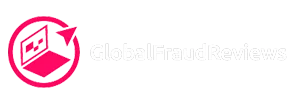Table of Contents
Introduction to NAGA
This NAGA review offers a detailed look into the broker’s claims, operations, and legitimacy. NAGA presents itself as a multi-asset platform providing forex, stocks, crypto, and CFD trading. It operates under the branding of NAGA Group AG, headquartered in Germany, with various entities registered in other jurisdictions. But the key question remains: is NAGA a scam or a reliable trading service? For those who have lost money or are suspicious of the broker’s practices, this review speaks directly to your concerns and digs into the facts. This NAGA review uncovers all the warning signs you need to know.
NAGA: Regulation & Legal Status
According to its official information, NAGA operates under NAGA Markets Europe Ltd, which is authorized and regulated by the Cyprus Securities and Exchange Commission (CySEC). However, the platform also has entities operating outside the EU, which might not offer the same level of protection as its regulated branch. This dual-structure approach is often used to attract clients under a regulated brand while directing them to less-protected entities.
Unregulated entities provide no meaningful oversight, leaving traders without client fund protection or avenues for dispute resolution. These setups have been exploited by numerous brokers in the past to mislead clients. Learn how to spot a scam broker before it’s too late. The lack of clarity around which entity you’re truly trading with raises serious questions about whether NAGA is a scam when it comes to investor safety.
Trading Conditions & Platform Analysis of NAGA
NAGA advertises a wide selection of trading instruments and offers a proprietary platform alongside the popular MT4/MT5. Minimum deposits are advertised at $250, with leverage up to 1:30 for EU clients and significantly higher for those under offshore entities. While this might seem appealing, high leverage increases the risk of quick losses, especially for inexperienced traders.
There is also little transparency regarding spreads, liquidity providers, or whether orders are processed through an STP/ECN model. Having MT4 or MT5 does not automatically equate to trustworthiness. Furthermore, the broker’s copy trading features—while attractive—carry their own risks if not backed by real, verified performance data. What to check before signing up with a trading platform. These inconsistencies make it harder to dismiss the notion that NAGA might be a fraud.
Reputation & User Reviews About NAGA
Feedback on NAGA is mixed across online forums and review aggregators. Some users appreciate its social trading features, but many others report slow withdrawals, unexpected fees, and poor customer support. On platforms like TrustPilot, complaints about account restrictions and difficulty retrieving funds appear frequently, suggesting systemic issues.
Traffic data from sources like SimilarWeb shows moderate engagement, which aligns with a mid-tier broker but raises doubts about the company’s claims of rapid growth and a “global trading community.” Additionally, patterns of glowing but vague reviews raise suspicions of manipulated testimonials rather than authentic feedback.
How to Test Whether NAGA Is a Scam
If you’re wondering whether NAGA is a scam, here are actionable steps you can take to protect yourself:
- Verify regulation: Confirm which NAGA entity you’re signing up with and verify licenses through CySEC or other top-tier authorities.
- Look for red flags: Be wary of offshore subsidiaries with weaker oversight.
- Investigate complaints: Check independent forums like Forex Peace Army for unresolved withdrawal or account issues.
- Test the platform: Try the demo account and assess whether execution and pricing are consistent with industry standards.
- Check withdrawal policies: Unclear or overly complex processes for withdrawing funds are a major warning sign.
- Beware of false promises: Any claims of guaranteed profits or “risk-free trading” are misleading.
Final Verdict & Alternatives
Based on our findings, NAGA is a mixed bag. While its regulated CySEC entity offers some level of protection, the use of offshore entities, negative user reviews, and lack of full transparency raise concerns. For traders prioritizing safety, these are red flags that cannot be ignored.
We recommend considering highly regulated alternatives like IG Markets, Saxo Bank, or Interactive Brokers. These platforms are known for transparency, robust oversight, and reliable customer service.
In conclusion, always choose a fully licensed broker with a clean track record. Your capital deserves better protection than what questionable setups can provide.


